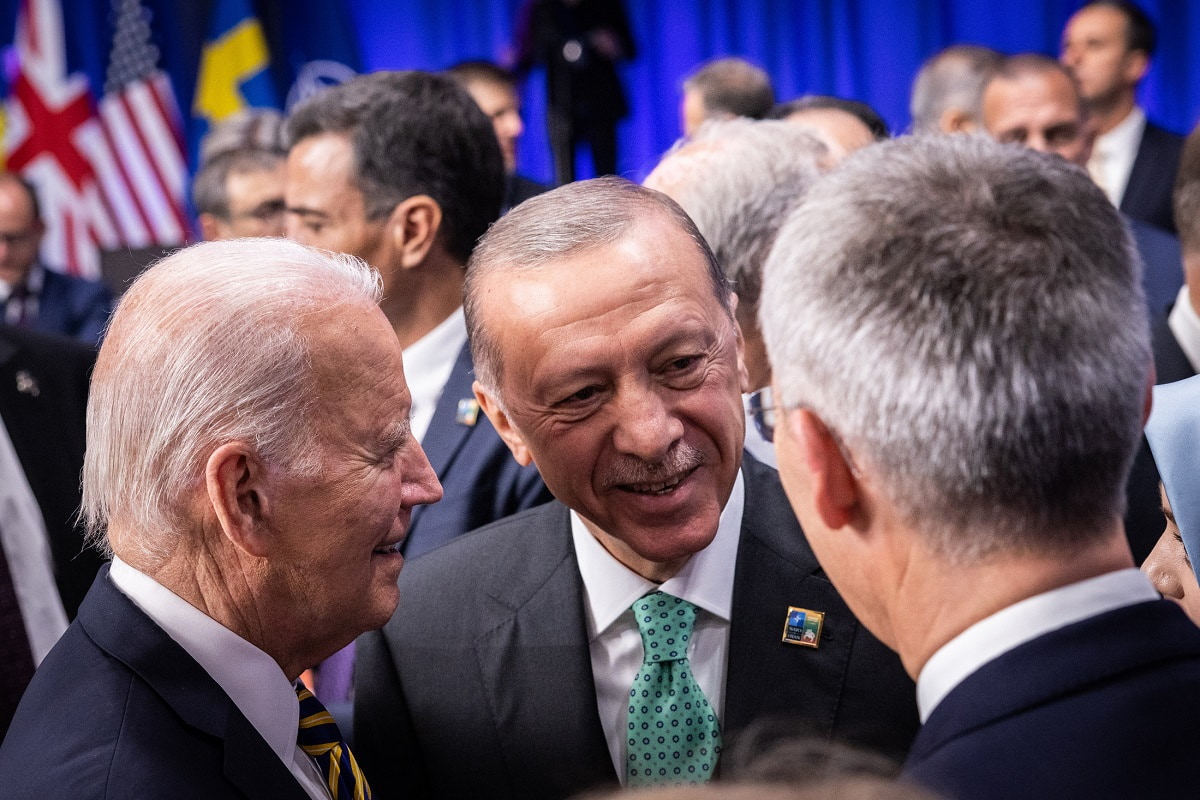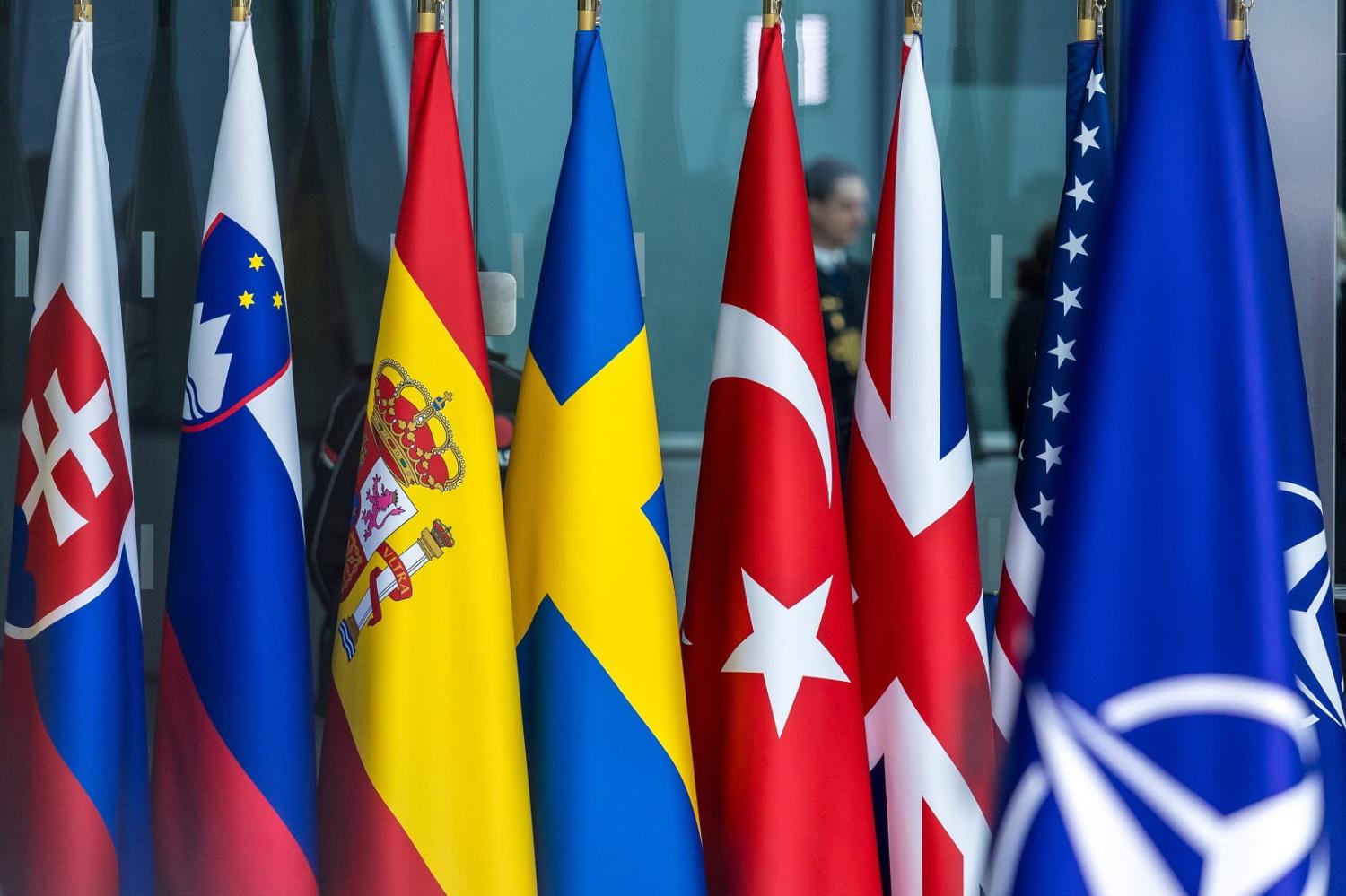After lengthy diplomatic toing-and-froing, Sweden has been inducted into the North Atlantic Treaty Organisation (NATO), with some pundits quipping that the Baltic Sea is now ringed by members of a transatlantic alliance. Of course, NATO’s maritime reach has long since grown beyond what its nomenclature would indicate. In 1952, NATO sailed into the Aegean and Black seas by welcoming Greece and Türkiye.
The admission of Türkiye, straddling the boundary of Europe and Asia, and Muslim-majority to boot, was then heralded as a defining moment for the alliance. Yet, of late, relations between Türkiye and other NATO members, particularly the United States, have been fraught. Ongoing Turkish intransigence was a considerable impediment to Sweden’s acceptance into NATO.
Ankara had a long list of grievances. It accused Sweden of offering safe haven to members of the Kurdistan Workers’ Party (PKK), which it classifies as a terrorist organisation. Türkiye’s misgivings about the United States also accumulated based on accusations of American involvement in a 2016 coup attempt, Washington’s refusal to supply F-35 fighters to the Turkish military, and its support for Syrian Kurdish militia, which Türkiye argues is an arm of the PKK.
Prickliness from Ankara and a spate of adventurist foreign policy gambits gave rise to not-unfamiliar claims of Türkiye’s turning away from the West, a chorus leant weight by Turkish President Recep Tayyip Erdoğan’s threatening in 2021 to expel ten ambassadors, most from NATO member states, and more recently to “part ways” with the European Union.
Since Türkiye’s ratification of Sweden’s NATO membership in January, however, it seems both Washington and Ankara are letting bygones be bygones, bringing an end to what some describe as the worst decade ever in Türkiye–US relations. The idea of rapprochement was soon being talked up, with US Senator Chris Murphy visiting Türkiye in February and affirming the “significant momentum” in the relationship. This became tangible with the US Congress approving the sale of a fleet of F-16 fighter jets to Türkiye, after several years of talks that had been periodically disrupted by heightened tensions.

A subsequent flurry of diplomatic engagements culminated in early March with high-level meetings between US Secretary of State Antony Blinken and Türkiye’s Foreign Minister Hakan Fidan in Washington. Fidan heralded the discussions as “opening a new chapter in our relationship, marked by a renewed spirit and a more positive agenda”. A joint statement from the US–Türkiye Strategic Mechanism underlined a “forward-looking, positive bilateral agenda that advances shared objectives and addresses emerging global challenges”.
The appointment of Sedat Onal in February as Türkiye’s Ambassador to the United States had been seen by many as a positive for US–Turkish relations. Onal is an experienced diplomat, rather than a regime insider as his predecessor had been, and his installation in Washington was expected to be warmly received by US officials. So far, that seems to be the case.
Elsewhere, Türkiye is extending the hand of friendship to certain states it had not long since been butting heads with. Some observers had remarked on a growing strain of militarism in Türkiye’s international outlook. This was exemplified by Erdoğan’s gibe in 2021 about the potential for Turkish missiles to reach Athens; an aside that surely raised eyebrows among his NATO allies. However, Erdoğan recently travelled to Greece to meet with his Greek counterpart Kyriakos Mitsotakis, talking up “neighbourly relations” and vowing to work through points of contention in the Aegean Sea.
Further demonstrating Türkiye’s integration into European security architecture, both Greece and Türkiye have joined the European Sky Shield Initiative established by Germany after Russia’s invasion of Ukraine in 2022, while Turkish Defence Minister Yaşar Güler has also travelled to London for talks with security officials.
What has prompted this recalibration of Türkiye’s foreign policy position? Erdoğan’s first face-to-face meeting with US President Joe Biden at a NATO summit in 2021 gave new impetus to transatlantic ties, after Biden had been standoffish since assuming the presidency. Erdoğan described their talks as “productive and sincere”.
Meanwhile, international aid and support flooding into Türkiye after the earthquake of February 2023 did much to dispel attitudes among Turks that their neighbours harbour evil designs towards them, prompting a more conciliatory international outlook. Erdoğan’s victory in the presidential election some months later also means that his political position is secure, thus he is perhaps less prone to confrontational posturing. This is not to say he has entirely abandoned evoking foreign bogeymen in his public statements. In a recent speech, he railed against “imperialist powers” who devise a “dirty game” intended to undermine Türkiye.
Where to from here? Talk is that Biden will soon invite Erdoğan to Washington. More ominously, Türkiye has announced it is planning comprehensive military operations across its southern border aimed at “terror-stan”, by which it means Kurdish militias and – presumably – the Kurdish-led autonomous administration in north-east Syria. The United States has long supported this entity, particularly during the international campaign against Islamist terror group ISIS, but Washington’s shifting relationship with Ankara may have changed the strategic calculus here.
NATO’s expansion has smoothed diplomatic waters, but there may yet be unexpected geopolitical ripples.

